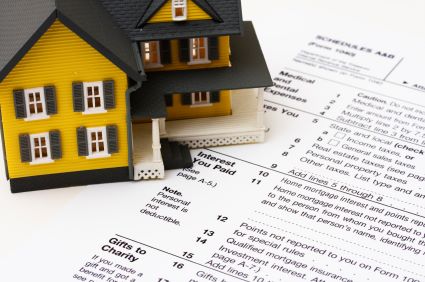Tax and Accounting Services
About DuPage Tax Solutions
DuPage Tax Solutions is located in Naperville, IL. Our clients are mostly residents and small businesses within the Chicago metropolitan area – DuPage, Cook, Will, and Lake counties. Our remote work capabilities allowed us to extend our services nationwide. Today, we pride ourselves in having clients from all 50 states. Our virtual services are fast, easy, and convenient. Clients submit and review documents electronically through our secured online portal.
Real Estate Taxation.
Real estate taxation is our expertise. Like you, we are real estate investors too. Learn about the advantageous strategies our team can offer for your real estate investments.

Home » Industry-Specific Tax Solutions » Real Estate » Real Estate Taxation
Have you ever wondered why real estate is often referred to as a tax shelter?
That’s because tax law in the U.S. is very friendly to real estate investors, which is one of the reasons why so many people today are investing in rental real estate. Plenty of real estate tax deductions allow you to legally reduce the amount of income tax paid.
An example of such a deduction is depreciation.
How does depreciation reduce your real estate taxation?
Depreciation is a non-cash expense compensating for your rental property depreciating or wearing out that you can deduct from your net income. The IRS allows you to depreciate residential rental properties over 27.5 years and commercial properties over 40 years.
So, if you paid $100,000 for a rental condo, your depreciation deduction is $3,636.36 per year ($100,000 / 27.5 years).
Depreciation Calculation
Depreciable basis: $100,000
Timeframe: 27.5 years
Depreciation per year: $3,636.36
(100,000 / 27.5 = 3,636.36)
Let’s say your net income from the rental is $10,000 (received rent minus expenses). Your income tax is $2,200 if you are in the 22% tax rate bracket.
When reducing your net income with the depreciation, your taxable income is $6,363.64, and your tax is $1,400. This is an $800 saving in taxes, 36.4% of your tax liability with no depreciation deduction included.
| No Depreciation | Depreciation Deducted | |
|---|---|---|
|
|
$10,000 | $10,000 |
| Depreciation | - $3,636.36 | |
| Taxable Income | $10,000 | $6,363.64 |
| Tax Rate | 22% | 22% |
| Tax | $2,200 | $1,400 |
| Saving | 0 | $800 |
36.4% saving in taxes
However, deductions aren’t the only item that is often overlooked.
The tax code is complex, and the real estate taxation depends on many variables.
Many real estate investors are unaware of the drastically different tax outcomes the variables–like legal structures, investors’ intentions, and whether the investors passively, actively, or materially participate in the activity–create until the realization bites them during the tax season or an IRS audit.
The variables create different amounts of taxes and complexity depending on whether properties are held long-term, as rental properties, for resale or whether an owner provides services other than basic maintenance.
real estate taxation Example:
Two taxpayers sold identical properties for a capital gain of $100,000. The first taxpayer held the property for over one year and the second taxpayer held the property for only a few months (flipped the property).
The IRS taxed the first taxpayer at a 15% capital gain rate and the second taxpayer at a whopping 43.3% because the first taxpayer is an investor and the second is a dealer according to the tax code.1 The second taxpayer paid 28% ordinary income tax and 15.3% self-employment tax, nearly 300% more than the first taxpayer.

| Investor | Dealer | |
|---|---|---|
|
|
$100,000 | $100,000 |
| Capital gain tax rate | 15% | 15% |
| Capital gain tax | $15,000 | $0 |
| Income tax Rate | 28% | 28% |
| Income tax | 0 | $28,000 |
| Self-employment tax rate | 15.3% | 15.3% |
| Self-employment tax | 0 | $15,300 |
| Total tax | $15,000 | $43,300 |
300% MOre in taxes
This example emphasizes the importance of consulting a tax specialist before getting involved in buying and selling real estate properties. Tax planning will help you protect your assets and earnings and increase your available equity.
Selling real estate? consider Like-Kind Exchange for deferring your real estate taxation
The like-kind exchange under Section 1031 allows taxes to be deferred to the future. More importantly, taxes can be permanently deferred as long as the investor keeps exchanging properties instead of selling. Moreover, at the investor’s death, the basis of the properties will automatically adjust to market value, eliminating all capital gains.
Basic requirements for a 1031 Exchange of real estate
- Both the relinquished and the substitute property must be held for productive use in a trade or business investment. Owner-occupied residences are not eligible.
- Both the property exchanged, and the one received must be of like-kind, meaning Real Estate for Real Estate – not Real Estate for Classic Art.
- The exchange must occur. The owner cannot sell one property for cash and immediately use the cash proceeds to purchase another property. The owner cannot “touch” the cash.
If these conditions are met …
- No capital gains or depreciation recapture tax will be paid at the time the property is transferred.
- The substitute basis for the acquired property will reflect the unrecognized gain from the relinquished property.
Before selling, exchanging, or transferring real estate, it’s important to do some tax planning and to know the tax outcome before transactions occur. Real estate transactions are big ticket items, and the taxes can add up quickly.

References
1 U.S.C. Title 26 – INTERNAL REVENUE CODE. https://www.govinfo.gov/content/pkg/USCODE-2011-title26/html/USCODE-2011-title26-subtitleA-chap1-subchapP-partIII-sec1221.htm.
Ready to Take Control of Your Finances?
Contact Info
1552 South Route 59 #1037
Naperville, IL 60564
Ph. (630) 909 9700
Email: [email protected]
Business Hours
Mon: 11 am – 7 pm
Tue: 11 am – 7 pm
Wed: 11 am – 7 pm
Thu: 11 am – 7 pm
Fri: 11 am – 7 pm
Sat: 12 pm – 5 pm
Sun: CLOSED
Helpful Links
© 2024 DuPage Tax Solutions | Site Map | Privacy Policy | Disclaimer
